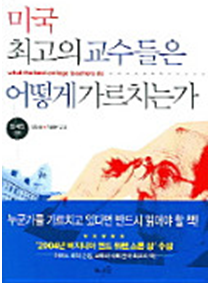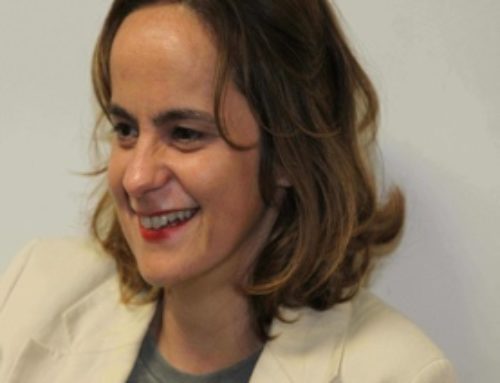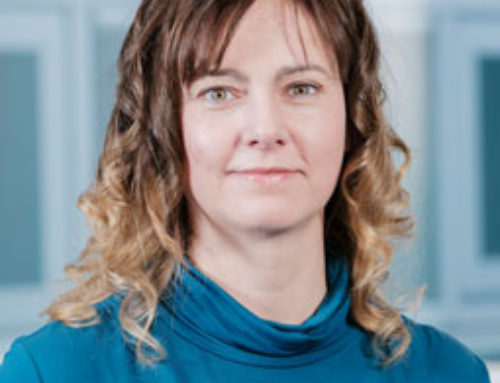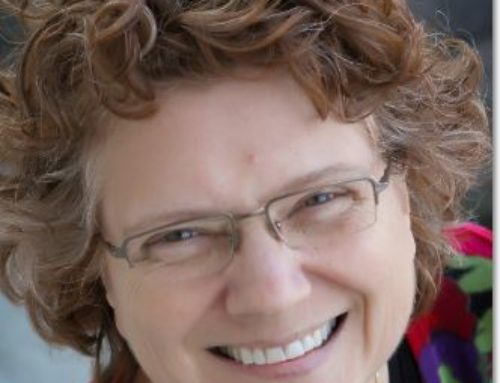HETL Note: We are pleased to inaugurate the second volume of the International HETL Review with an interview with Dr. Ken Bain who is the author of What the Best College Teachers Do. Cambridge, MA: Harvard University Press (2004). The book won the 2004 Virginia and Warren Stone Prize for an outstanding book on education and society and has been translated into twelve languages. Dr. Bain believes that today’s university students thrive best in cooperative classroom environments as opposed to competitive ones and that the best teachers use this understanding to create “natural critical learning environments.” HETL interviewed Dr. Bain via Skype to further explore this belief.
Harvard University Press will publish (August 2012) Dr. Bain’s latest book entitled, What the Best College Students Did. It is a study of highly creative people in a variety of fields and how they got to be that way (especially how they reacted to their college experience).
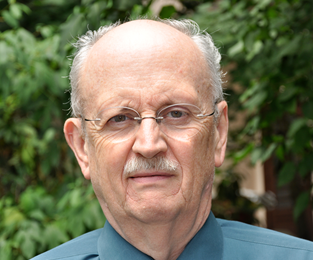 Bio: Dr. Ken Bain is the newly appointed Provost and Vice President for Academic Affairs at the University of the District of Columbia, in Washington, DC, USA, and Professor of History and Urban Education. He is the founding director of four major teaching and learning centers: the Center for Teaching Excellence at New York University, the Searle Center for Teaching Excellence at Northwestern University, the Center for Teaching at Vanderbilt University, and the Research Academy for University Learning at Montclair University. Dr. Bain has given workshops and has lectured at over three hundred universities and events in the United States, Canada, Mexico, South America, Europe, Asia, Africa, and Australia. He has received awards from the Harry S Truman Library, Lyndon Baines Johnson Library, the Ford Foundation, the National Endowment for the Humanities, and the International Studies Association, among others.
Bio: Dr. Ken Bain is the newly appointed Provost and Vice President for Academic Affairs at the University of the District of Columbia, in Washington, DC, USA, and Professor of History and Urban Education. He is the founding director of four major teaching and learning centers: the Center for Teaching Excellence at New York University, the Searle Center for Teaching Excellence at Northwestern University, the Center for Teaching at Vanderbilt University, and the Research Academy for University Learning at Montclair University. Dr. Bain has given workshops and has lectured at over three hundred universities and events in the United States, Canada, Mexico, South America, Europe, Asia, Africa, and Australia. He has received awards from the Harry S Truman Library, Lyndon Baines Johnson Library, the Ford Foundation, the National Endowment for the Humanities, and the International Studies Association, among others.
Every summer for the past seventeen years, he has brought five or six of the outstanding teachers he wrote about together for three days of workshops and conversations, and allowed approximately fifty other faculty members from around the world to join those conversations. This year that Best Teachers Summer Institute will take place June 20-22, 2012, in West Orange, NJ, just west of New York City. Additional information can be found here.
Patrick Blessinger and Krassie Petrova
~~~~~~~~~~~~~~~~~~~~~~~~
What the Best College Teachers Do
Dr. Ken Bain
University of the District of Columbia
HETL: Dr. Bain, in your book, What the Best College Teachers Do, you start out by asking the question: What do any of the best college and university teachers do to help and encourage students to achieve remarkable learning results? Then perhaps we should start this interview with the question: How do you define what it means to be a great teacher and how do you define “remarkable learning”?
Ken Bain [KB]: Both excellent questions, but not easy to answer. Let us start with learning and learners. I am heavily influenced by the research and theoretical literature on deep learning. As you probably know, a considerable body of research has found that university students will predominantly take one of three broad approaches to their learning and that these approaches, or intentions, direct what they do.
Surface learners intend primarily to survive, to get out of the course alive. You can hear it in the language they use. They often resort to what they think will be the easiest approach, namely to memorize stuff to be able to simply repeat it on the examination.
Strategic learners are driven by a desire for recognition, usually in the form of higher grades. They will do what they think is necessary to get those grades, but that is not the same as the deep learner who intends to understand, to think about implications of that comprehension, to think about applications and possibilities, to identify arguments and to distinguish in those arguments between evidence and conclusions. Strategic learners tend not to take risks (for fear it will jeopardize their grade point average) or to learn conceptually. They learn procedurally, how to plug the right number in a formula, or the right words in a particular form of essay.
Deep learners, by contrast, grapple with ideas, concepts, and the implications and applications of those ideas and concepts. John Biggs’s Solo taxonomy [1] helps us conceptualize what that deep learning might entail. The students at his highest (or deepest level) will learn to theorize and hypothesize. They will build new conceptual models and use those models to understand, analyze, synthesize, and evaluate. The Kirchener and King reflective judgment model [2] also captures a lot of what deep learners can do, and so does the concept of the adaptive expert. In short, deep learners undergo transformations in the concepts they hold. Their learning has a sustained and substantial influence on the way they will subsequently think, act, and feel.
HETL: Could you elaborate more on the concept of deep learning – how would characterize deep learning and its impact on the learner?
KB: I think learning can be defined in terms of the intellectual, artistic, and personal development of the students. One of the great teachers of the twentieth century, Paul Baker, talked about helping students develop the dynamic power of their own minds. In Baker’s terms that meant helping students realize their own unique perspectives and what it meant to create valuable work of the mind. Baker worked in the performing arts, but his ideas have important implications for all of our fields, from engineering/science to medicine to the arts/humanities to the social sciences.
Baker tried to help students see their own uniqueness and their capacity to develop perspectives that no one else can originate. But if each of us comes from a unique perspective that means that you can develop insights and perspectives that I would never originate on my own, and so can Einstein and Shakespeare. Thus, an important part of the creative process and learning derives from the ability to recognize good ideas that other people have developed and to make our own contributions to them.
I wrote that outstanding teachers will have “remarkable success” in fostering predominantly deep learning approaches and achievements in learning and that kind of unique personal development of which Baker spoke. I used the term “remarkable success” to indicate that such teachers will reach students and influence their learning intentions and successes in ways that go far beyond what anyone might normally expect with a given group of students.
In other words, some people might have “remarkable success” in moving difficult (and even unprepared or ill-prepared) students to a slightly higher level. The conception is not just based on how deeply students learn, but also on the influence that the teacher has had on their learning. Thus, some people working with students who are already learning deeply might not have as much “remarkable success” as someone who takes a group of disengaged students and turns them into very deep learners, with deep intentions.
HETL: Dr. Bain, why is being a great teacher important? Relative to other factors such as course design, subject matter expertise, and research, how important is the quality of teaching in influencing learning outcomes?
KB: I see teaching as anything someone might do to foster someone else’s approach to and achievements in learning, including the learning that the professor does to prepare for the experience, or the design of the course and the curriculum. I am not thinking of teaching as just what one does in the classroom in front of students. In the book, I noted that all of the people I identified were accomplished learners in their fields, and that such learning seemed to be a pre-requisite to their ability to foster deep learning.
I do not think you can separate the two (research and teaching). I think, instead, that we have to recognize that they are both concerned with learning. One is focused primarily on the learning of faculty and the other primarily on the learning of students, but there is a connection between the two. As it turns out, one of the primary abilities in both is the ability to ask important questions. That is absolutely essential in doing important research and it is fundamental to provoking deep learning.
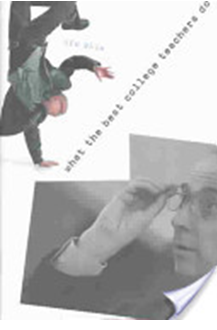 Sometimes people teach most effectively through their writing, through the courses they design, and so forth. But I see all of these activities as teaching. Is it teaching if I publish an article in an obscure journal that no one reads? Well, if no one reads it, then obviously not. But if a few people read it and they learn from it, then I have taught them something. The problem arises in terms of scale and in terms of levels of teaching and learning. I may teach those few people who read my obscure article written for very advanced learners, but that will not help me foster learning among my undergraduates, or even some graduate students. We have to think about teaching at different levels and to different groups.
Sometimes people teach most effectively through their writing, through the courses they design, and so forth. But I see all of these activities as teaching. Is it teaching if I publish an article in an obscure journal that no one reads? Well, if no one reads it, then obviously not. But if a few people read it and they learn from it, then I have taught them something. The problem arises in terms of scale and in terms of levels of teaching and learning. I may teach those few people who read my obscure article written for very advanced learners, but that will not help me foster learning among my undergraduates, or even some graduate students. We have to think about teaching at different levels and to different groups.
Someone (a chemist, I think), once asked me why so many historians like myself are interested in the “quality of teaching.” That question made me stop and think, and I think it is because in a field like mine, what I learn becomes significant only if lots of other people also learn. But if five people in the entire world can “know” something in a field like chemistry then their understanding can have significance. My chemist friends are probably going to disagree, but my point is that I am not just interested in so-called “great teaching”; I’m interested in great teaching that reaches a large number of human beings, that helps significant numbers of people develop the dynamic power of their own minds and that helps them flourish as critically thinking, curious, creative, and, yes, compassionate individuals.
Achieving that goal requires well-designed courses, knowledge born out of research, sophisticated understanding of intellectual, physical, and social abilities, and what goes on between teacher and student in the classroom. I think we need to stop dividing research and teaching into separate and competing categories. They cannot exist without one another. And, as I say, I am trying to re-conceptualize them to see them as different parts of a common enterprise.
HETL: Dr. Bain, if the reward system for college faculty offers greater rewards for research than teaching then what incentive do teachers have to want to do great teaching and create great learning environments?
KB: I think part of the secret is in re-thinking the traditional divisions that we see between the two. What we have traditionally called teaching and research have something in common: learning. Rather than dwelling on the perceived conflicts between them, we need to explore ways that the learning of teacher and student can complement each other rather than stand in conflict. I think the most fruitful way of doing that may be in understanding the power and importance of good question-making in the success of each. The ability to ask good questions has long been recognized as central to research and publication success, but we also need to see its importance in cultivating someone else’s learning, and how, in turn, the ability to ask good questions to spark someone else’s learning can help drive a research agenda. Great teacher/scholars recognize that already.
The connection is this: people are most likely to take a deep approach to their learning when they are trying to answer questions or solve problems that they, the learners, have come to regard as important, intriguing, or just beautiful. Yet in a formal educational environment, the learner is usually not in charge of the questions. We could solve that problem by putting the learners always in charge of all the questions, and some people have attempted to do just that. But while that has some benefits, it also has limitations. Novice learners cannot imagine some of questions that advanced learners have begun to consider. Thus, we need to have advanced learners (teacher/scholars) raising questions for novice learners (students) to think about.
However, that often creates a gap between the conditions that prevail in a formal educational environment and the conditions that may stimulate deep learning. The great teachers have learned to fill that gap by asking questions that students will find important, intriguing, or just beautiful, and they manage to do so because of their own deep understanding born out of their own learning. Their own struggle to frame the questions that will provoke students often leads to new insights that will influence their research. Cultivating someone else’s learning entails more than asking great questions, but it is the necessary ingredient that underpins everything else.
But because it does involve more than asking great questions, great teachers have to be motivated by a lot more than by “will it help my research”. In my conversations with these people, I have discovered a wide variety of motivations including a sense of responsibility to the intellectual community and to its vitality. I think some people realize that the intellectual community that undergirds all of our research and learning benefits from having lots of people who are highly educated. Indeed, some people tell me that they are driven in part by a realization that every aspect of a good society depends on having an educated population. Thus, they are not content to concentrate rather selfishly on just their own learning, or even just the learning of their generation. Rather, they are driven in part by the sense of responsibility to the learning of all generations.
I think some people also find great personal satisfaction in helping other people develop their minds, their knowledge, and their intellectual and personal abilities. These are intrinsic motivations. I have heard some people say that they find great joy in the creative accomplishment of producing a wonderful learning experience for their students, and I have heard people say that they feel a moral responsibility to foster the learning of their students. In short, I think there are a variety of possible motivations that go beyond the typical extrinsic motivations like salary and advancement.
HETL: Dr. Bain, how does the funding of higher education impact teaching and research? Can you provide some insight on that phenomenon?
KB: None of this, however, is designed to excuse or dismiss the enormous pressures that many people place on professors simply to turn out more publications and accumulate research dollars. Part of the problem is the way and the reasons higher education is funded in many countries.
The United States is an excellent example. In this country, we have never had a strong public policy of providing support for higher education. The closest we came to any kind of national policy occurred in the Lincoln administration (1860s) with the creation of land-grant institutions. I believe the last of the land-grant universities that congress created may have been the University of the District of Columbia in the 1960s and 1970s. Following World War II, there was a great push to increase research in the United States, and lots of public money came in the form of research grants from agencies such as the National Institutes of Health, the National Science Foundation, the National Endowment for the Humanities, and others.
Meanwhile, presidents of public universities faced declining public support, which came largely through state monies, especially after about 1980. That meant that many public universities that had traditionally devoted themselves to student learning suddenly felt like they had to get more dollars from grants. But grants, so the perception goes among many university leaders, are most likely to go to people who have the most publications. Thus, presidents and provosts and deans started pushing people simply to publish. The amazing part of that whole history—in which we are still engaged—is that the emphasis on publications did not correspond to any emphasis on anyone’s learning, students or faculty. Thus, deans, provosts, and presidents would often simply count the number of publications someone would generate to decide if they deserved promotion and a higher salary.
They did not seem to care whether or not students or faculty members had learned anything, and when pressed, often could not discuss the intellectual contributions that a professor had supposedly made with all those publications. That process was, somewhat ironically, most likely to happen within the “teaching universities” that decided that they had to become research-intensive institutions rather than within the leading research universities. As a result, there is often a much friendlier atmosphere for people interested in student learning within some—but certainly not all—of the major research universities than there is within the “teaching university” turned “research intensive” university.
The pressures from this process have been slightly off-set in the United States by the other major means of getting funding to institutions of higher learning, financial aid to students. Because a substantial amounts of money flowed through students into the university—even for “private” institutions—there has been some pressure from those students to improve the learning environment. That has helped offset the pressures in the other direction.
I guess my fundamental point, however, is that I believe that there is no inherent conflict between faculty and student learning and that if we understand that research and teaching are really two important parts of a larger process of learning, we can avoid systems that simply blindly encourage publications, publications, publications with no emphasis on anyone’s learning.
HETL: Dr. Bain, you make the statement “that teaching is one of those human endeavors that seldom benefits from its past.” What do you mean by that?
KB: In general I meant that because traditionally people have not recorded and shared the insights they have developed from teaching, those insights and practices are not passed on to subsequent generations. A great teacher emerges, learns a great deal about how people learn and how best to cultivate that learning. They create wonderful learning environments for their students, but they do not necessarily share what they have learned with their colleagues.
We do not have a substantial body of literature that captures the insights and practices of the great courses that have been created in the past. Perhaps colleagues within a particular department spend thirty or forty years with a colleague who has developed great insight and practices and others learn from that experience, but it does not go beyond that point—except that some of the students in those classes may be influenced if they become educators.
HETL: Dr. Bain, then to what degree does personality type play a role in being a great teacher? For instance, are extroverts inherently more likely to be great teachers than say introverts?
KB: I do not know that they are. You can have extroverts and introverts who do not care about anyone else and their learning and you have others of both types who do. I think much depends on how much you care about the development of other people. It is true that in many traditional learning environments, it helps if you can get up in front of people and communicate with them. But I do not think that depends much on personality.
For instance, I am an inherently shy person, and I have had to struggle to learn to stand in front of a class and communicate. People tell me that I do a pretty good job with engaging a group of people now, but I had to learn to do that. It was part of my own personal development, and I pursued it for my own satisfaction, but had I not done so, I might have become better at creating good learning environments in other ways, with games I invented, or online environments I might produce.
I have no idea what kind of personality, for example, the people have who developed the Web site Starfall.com. But it is a wonderful learning environment for children learning to read the English language. It might even work for adults from other language backgrounds. I do not know. My oldest grandson—who is now seven—discovered Starfall.com on his own when he was about two, and by the time he was four, he had learned how to read. My youngest grandson—who is now four—is doing the same thing. The people who created that Web site are wonderful teachers, but they may all be introverts (or extroverts) for all I know.
HETL: Dr. Bain, can a teacher who uses primarily lectures still be able to be a great teacher? In other words, how important is method in being a great teacher?
KB: As I noted in the book, the great teachers I encountered employed a rich array of approaches to teaching. Someone like Derrick Bell—a great teacher who died in 2011 at the age of 80—never lectured as far as I know. Jeanette Norden creates equally powerful learning environments within lectures. As I wrote in chapter five, whether one lectures or not is not the key factor. Rather, much of the success depends on what we call the creation of a “natural critical learning environment”. It was the kind of learning environment that we saw in both Bell’s class and Norden’s class.
HETL: Dr. Bain, it seems that you are saying that great teachers are not only experts in their subject matter but they are also experts in how to create great learning environments. If so, how does one become an expert in creating a great learning environment?
KB: Two factors that I have not stressed thus far are important. You must have great insight into what it means to learn in your field, and you must have an equally deep insight into how people learn and all the personal and social forces that can both interfere with and support that learning. That is easier to say than it is to do, but it does require attention to the research and theoretical literature on human learning. I sometimes tell audiences that I taught for twenty years before it ever occurred to me to look at much of the literature on human learning despite the fact that such a body of literature existed and I was trying to cultivate other people’s learning. Fortunately, I have been at this long enough (because I started teaching when I was five years old) that I have had another twenty-five years to read that literature. I think people should do it earlier in their careers.
Another major factor is the development of the ability to ask important and intriguing questions that will engage our students. We spend too much time pinning our hopes on our machines, hoping that computers or iPads or something magical will help engage our students. They won’t. Students will become engaged only when they see the questions and problems as important, intriguing, or just beautiful. We can learn to use the arts—from poetry to film to music—to help raise the question, but we have to understand those questions and their connection with the questions that may already be on the minds of our students.
HETL: Dr. Bain, apart from any specific personality traits, do great teachers have a common set of practices (that is, behaviors) that make them great in your opinion? In addition to practices, do great teachers have a common philosophy (that is, a way of thinking), that make them great in your opinion?
KB: Great teachers will ask great questions in the process of creating that natural critical learning environment. I discuss that environment in the book, but the concept of the natural critical learning environment has continued to grow in our minds; some of our latest thinking can be found in a very simple form at http://www.bestteachersinstitute.org/id30.html and in the surrounding pages on that Web site.
As for whether or not great teachers have a common philosophy, it depends on what you mean by a “common philosophy.” I do think that all of the people I have studied had a strong devotion to fostering deep approaches and achievements in learning, and they conceived of teaching as anything they might do to help other people learn. But everything I have said might be a part of that “common philosophy.”
HETL: Dr. Bain, if you could give one piece of advice to a new faculty member wanting to become a great teacher, what would it be?
KB: I guess it would be to think carefully about what kind of paradigms their students are likely to bring to class and to think about the kinds of questions that might engage students deeply and challenge those paradigms, and how they can let the research on university teaching and learning inform their practices.
I think it is also important that we pay attention to the research on human learning. It never stops amazing me that some people who say they value research never consider to use any of the research findings when it comes to designing their own classes and learning environments.
I think that both new and established faculty members would be well served to look at the research finding on human learning when designing their courses.
~~~~~~~~~~~~~~~~~
Interview date & place: 13 January 2012 via Skype
HETL interviewers: Patrick Blessinger and Krassie Petrova
Copyright © [2012] Ken Bain and International HETL Association
Suggested citation
Bain, K. (2012, January 9). What the Best College Teachers Do: An HETL interview with Dr. Ken Bain. Interviewers: Patrick Blessinger and Krassie Petrova. The International HETL Review. Volume 2, Article 1, https://www.hetl.org/interview-articles/what-the-best-college-teachers-do/
References
[1] Biggs, J. and Collis, K. (1982) Evaluating the Quality of Learning: the SOLO taxonomy. New York: Academic Press. See http://www.johnbiggs.com.au/solo_graph.html
[2] Kitchener, K., King, P. (1994) Developing Reflective Judgment: Understanding and Promoting Intellectual Growth and Critical Thinking in Adolescents and Adults (Jossey-Bass, Inc.; San Francisco, CA)
